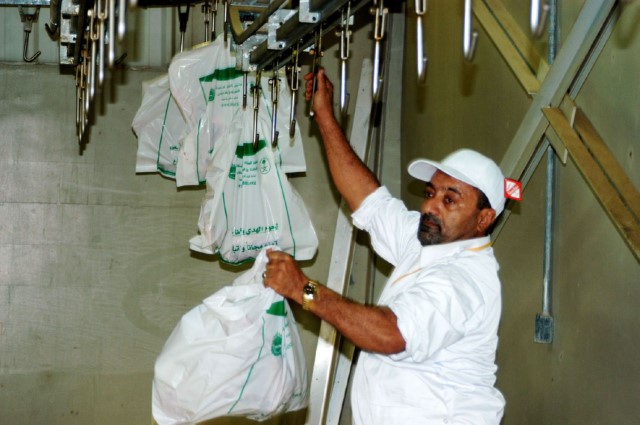Riyadh- King Salman Center for Relief and Humanitarian Aid (KSRelief) continued distributing aid to 507,310 displaced people in Syrian governorates of Aleppo and Hama, reported the Saudi Press Agency (SPA).
According to the Tuesday SPA statement, aid includes clothes, cooking appliances, family hygiene products, gas heaters, blankets and sponge bed mattresses.
All relief efforts are in compliance directives of the Custodian of the Two Holy Mosques King Salman bin Abdulaziz Al Saud to alleviate the sufferings of displaced people in Syria.
Syria has spiraled down into disastrous humanitarian conditions as civil war ripped throughout the country.
More on the aid foundation’s relief works in the region, KSRelief sponsored the second mosquito pesticide preemption wide-area spray in Yemen.
Mosquitos are carriers of dengue fever. Yemen’s Tarim Directorate and the Hadramout Governorate were a part of the Dengue Control Project financed by the Saudi body.
This campaign is a part of a series of efforts which proved successful with eliminating mosquitoes carrying dengue fever.
No affected case has been registered until this very moment in the Directorate of Tarim, reported SPA. About 153,516 people benefit off the protective effort.
Saudi Arabia’s embassy in Jordan also contributed to the distribution of 24,000 cattle heads, a part of the ‘Adhi venison’ allocated yearly to the poor. The meat was provided by the Kingdom of Saudi Arabia and given to refugees and poor people in Jordan.
Saudi Deputy Ambassador in Jordan Mohammed Al-Ateeq visited one of the distribution centers accompanied by representatives of Islamic Development Bank and a delegation from Jordanian Ministry of Interior and were briefed on the distribution mechanism of sacrificial meat in 12 Jordanian governorates.
